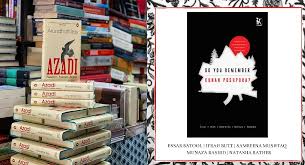Arundhati Roy to Noorani, J&K Home Dept bans publication of 25 books on Kashmir: ‘Propagating secessionism’

The Jammu and Kashmir Home Department has banned 25 books related to the Kashmir issue, including works by renowned authors like Arundhati Roy and A.G. Noorani. Officials claim these books spread secessionist ideas, glorify terrorism, and distort history.
The order, issued on August 5, 2025, cites sections of the Bhartiya Nyaya Sanhita (BNS) 2023. The government says these publications threaten India’s sovereignty and public order. Authorities have ordered the forfeiture of all copies, blocking their sale, distribution, or circulation in the Union Territory.
Government Justifies the Ban
According to the Home Department, intelligence reports revealed these books promote anti-national narratives. Officials argue the content encourages youth radicalization, disrespects security forces, and supports separatist ideologies.
The order references Sections 152, 196, 197, and 98 of the BNS. These sections deal with promoting separatism, inciting hatred, spreading false information, and forfeiture of harmful material.
Officials claim that the books could trigger unrest. They also say the publications mislead the public and glorify individuals linked to terrorism. As a result, the government sees the ban as necessary for preserving peace and national integrity.
Authors and Titles Banned
The list features Indian and international authors. Many of the titles are considered essential reading in academic and policy circles. Some of the most prominent works include:
- Azadi: Freedom. Fascism. Fiction by Arundhati Roy
- The Kashmir Dispute: 1947–2012 by A.G. Noorani
- Kashmir at the Crossroads and Contested Lands by Sumantra Bose
- A Dismantled State by Anuradha Bhasin
- In Search of a Future by David Devadas
- Kashmir in Conflict by Victoria Schofield
- Independent Kashmir by Christopher Snedden
In addition, the government banned religious and ideological texts such as Al-Jihad fil Islam by Abul Ala Maududi and Mujahid Ki Azan. Officials claim these books promote extremist ideas and fuel separatist sentiments.
Sharp Reactions From Writers and Scholars
Writers and academics quickly condemned the ban. Many called it an attack on intellectual freedom and academic thought. Anuradha Bhasin, whose book appears on the list, said the government wants to silence “documented truths and lived experiences.”
Several scholars argue the ban erases alternative narratives. They believe this action limits critical discussion and undermines democracy. “Banning books won’t solve real problems. It only hides uncomfortable truths,” said a university professor who specializes in conflict studies.
Meanwhile, human rights activists expressed concern about rising censorship. They warn that the state is using national security to justify the shrinking space for free speech.
National Security vs Freedom of Expression
While critics see the move as oppressive, the government insists it’s protecting national interests. Officials say the books support a hostile narrative that portrays India as a repressive power.
According to sources, security forces discovered some of these books in militant hideouts. Others were used in separatist group libraries to influence young minds. Authorities fear that such material could incite violence or deepen alienation in Kashmir.
The J&K administration believes that strict steps like these are necessary. Since the abrogation of Article 370 in 2019, the region has seen major shifts in policy. The government claims these steps aim to restore order and integrate the region fully with India.
Broader Impact and Legal Implications
Legal experts believe the ban could face challenges in court. Several argue that it violates Article 19 of the Indian Constitution, which protects freedom of speech and expression.
In academic circles, the decision has caused alarm. Many universities include these banned titles in South Asian studies programs. Professors and students worry that the action will restrict research and education.
International observers have also taken note. The ban may draw criticism from global human rights groups and freedom of press organizations.
Conclusion
The J&K government’s ban on 25 books has sparked a heated debate across India. Supporters argue it is a necessary step to protect peace and national unity. However, critics see it as part of a broader crackdown on dissent and independent thought.
As India continues to navigate its complex relationship with Kashmir, such actions will remain under intense scrutiny. The final word may rest with the courts — or with the broader public that values both security and freedom.






